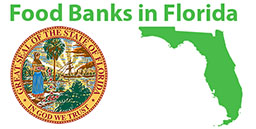Florida SNAP – Supplemental Nutrition Assistance Program
The Supplemental Nutrition Assistance Program (SNAP) issues electronic benefits that can be used like cash to purchase food. SNAP helps low-income working people, senior citizens, the disabled and others feed their families. Eligibility and benefit levels are based on household size, income and other factors.
The Supplemental Nutrition Assistance Program (SNAP), formerly known as the Food Stamp Program, is a vital government assistance program aimed at combating food insecurity and improving access to nutritious food for low-income individuals and families. SNAP provides eligible participants with an electronic benefit transfer (EBT) card, which can be used to purchase eligible food items at authorized retailers, including grocery stores, supermarkets, and farmers’ markets.
Florida SNAP Program Eligibility and Benefits
SNAP eligibility is determined based on various factors, including income, household size, assets, and citizenship status. The program primarily targets individuals and families with limited financial resources, ensuring that they have adequate funds to purchase food. Eligibility requirements and benefit calculations vary by state, but the program operates under federal guidelines.
To qualify for SNAP, applicants must meet income limits set at or below 130% of the Federal Poverty Level (FPL). However, certain deductions and allowances are taken into account when calculating income eligibility. Household size is also a significant factor, as larger households typically have higher income limits. Applicants are encouraged to utilize online screening tools or contact local SNAP offices for accurate information on eligibility.
The amount of SNAP benefits received is determined by factors such as income, expenses, and household size. Benefits are issued monthly and loaded onto the EBT card. Recipients can use the EBT card like a debit card to purchase eligible food items, excluding non-food items such as tobacco, alcohol, and hot prepared foods.
Supplemental Nutrition Assistance Program Application Process
Individuals interested in applying for SNAP can do so through various methods, including online applications, in-person visits to local SNAP offices, or by mail. Most states also offer a pre-screening tool to assess potential eligibility before submitting a formal application. The application requires providing personal information, income details, household composition, and verification documentation, such as identification, proof of residency, and income documentation.
Once the application is submitted, it is typically reviewed within 30 days, although expedited processing is available for emergency situations. During the review process, the applicant may be required to provide additional documentation or attend an interview. Upon approval, the SNAP benefits are issued, and the EBT card is mailed to the recipient’s address.
Florida Supplemental Nutrition Assistance Program Program Impact and Benefits
Florida SNAP plays a crucial role in reducing food insecurity and improving overall health and well-being. The program provides individuals and families with the means to purchase nutritious food, helping to alleviate hunger and promote better nutrition. By increasing access to healthy food options, SNAP contributes to better physical and mental health outcomes, particularly for vulnerable populations such as children, seniors, and individuals with disabilities.
Additionally, SNAP has broader economic benefits. The program stimulates local economies by increasing the purchasing power of low-income households. Every dollar spent on SNAP benefits generates economic activity, as recipients spend their benefits at local grocery stores and markets. This, in turn, supports jobs in the retail and agricultural sectors, benefiting both rural and urban communities.
SNAP Program Challenges and Initiatives
Despite its positive impact, SNAP faces certain challenges and ongoing efforts to improve its effectiveness. Some of the challenges include program stigma, incomplete participation rates, administrative complexities, and maintaining accurate eligibility determinations.
To address these challenges, various initiatives and policies have been implemented. These include outreach and education campaigns to increase awareness about SNAP, simplifying the application process, expanding access to technology for application submissions, and promoting collaboration between SNAP and other assistance programs to streamline enrollment and provide integrated services.
Efforts are also being made to improve the nutritional value of SNAP benefits. Some states have introduced incentives and initiatives to encourage the purchase of fresh produce and healthier food options. Additionally, nutrition education programs are being integrated into SNAP to equip participants with the knowledge and skills to make informed choices about their food purchases and overall health.
Florida SNAP is a vital government program that addresses food insecurity and improves access to nutritious food for low-income individuals and families. By providing financial assistance through the issuance of EBT cards, SNAP plays a crucial role in promoting better nutrition, reducing hunger, and supporting local economies. Efforts to enhance program accessibility, reduce stigma, and improve nutritional outcomes continue to be undertaken to ensure the program’s effectiveness in meeting the needs of those it serves.



